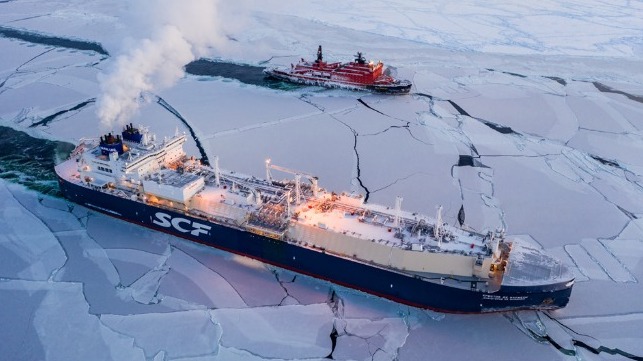EU Looks at New Ways to Limit Russian LNG Imports

Europe's sanctions on Russian energy exclude cargoes of oil and petroleum products from the bloc's ports, but there is a big gap: LNG.
Russian pipeline natural gas imports into the EU have evaporated since the invasion of Ukraine, but European utilities are importing more Russian liquefied natural gas than ever before. In 2021, LNG imports from Russia stood at about 16 billion cubic meters; last year, as the invasion of Ukraine marched on, that number rose to 22 billion cubic meters. This is the opposite of Europe's overall policy objective - to cut reliance on Russian energy, diversify its energy supply, and reduce financial flows to the Russian government.
The EU's 27 member states are now negotiating a mechanism to close the Russian-LNG loophole without going through the difficult process of instituting new sanctions. A proposal led by Eastern European and Baltic states would allow an individual EU nation to prevent Russian gas exporters from bidding on import terminal capacity, effectively blocking Russian LNG cargoes from the nation's seaports.
The plan is included within EU energy ministers' official position on new market rules for the bloc's gas sector, and it is subject to further negotiations with the EU Parliament.

that matters most
Get the latest maritime news delivered to your inbox daily.
In the meantime, EU Energy Commissioner Kadri Simson has urged EU gas utilities to voluntarily stop buying Russian LNG. “I encourage all member states and all companies to stop buying Russian LNG and not to sign any new gas contracts with Russia once the existing contracts have expired," she told Reuters earlier this month.
Spain is the largest EU importer of Russian LNG, and Deputy Prime Minister Teresa Ribera has encouraged the nation's utilities to “intensify the diversification of supply of liquefied natural gas and do without those from Russia," according to a letter seen by Bloomberg News.
